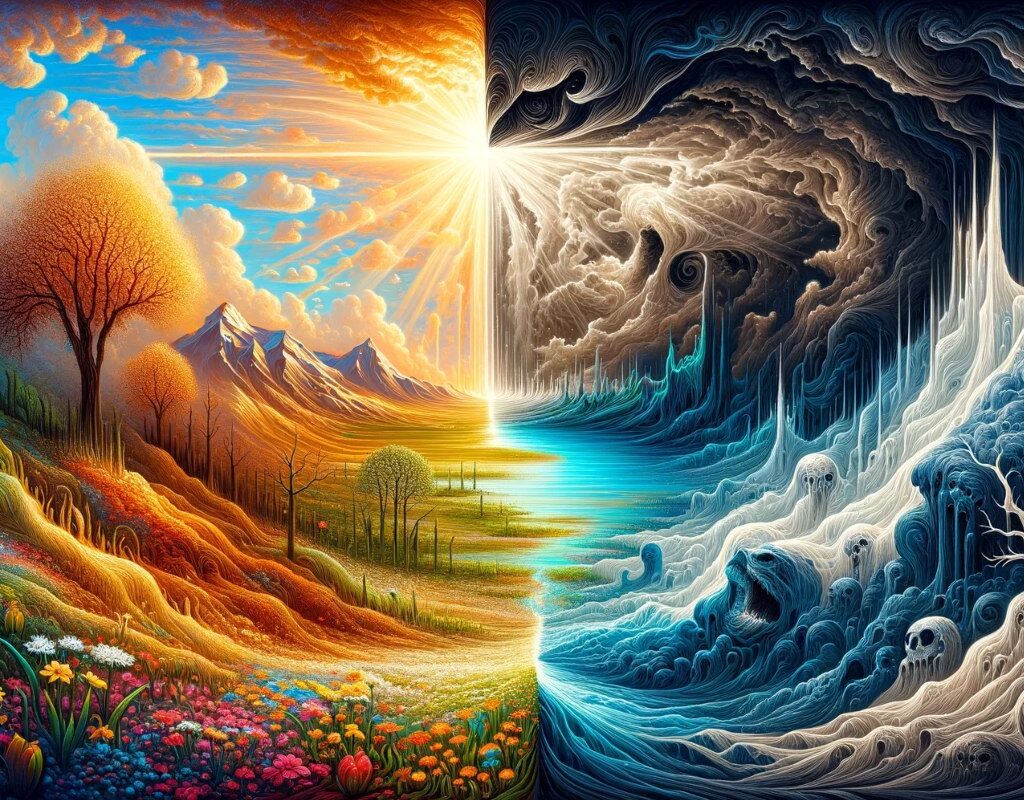In a university classroom, a debate ignites with a provocative question from the professor: “Did God create everything that exists?” A student, with conviction, affirms.
Academic Debate: The Existence of Evil and the Absence of God
The professor, challengingly, argues that if God created everything, then He also created evil. Consequently, if our deeds reflect us, God would be malevolent. This statement leaves the classroom in silence.
Cold and Darkness: Relative Concepts
Another student interjects, questioning the existence of cold. They explain that, according to physics, what we perceive as cold is the absence of heat. Absolute zero marks the complete lack of heat, but cold itself does not exist; it’s a concept created to describe our experience in the absence of heat.
Continuing with darkness, they argue that it doesn’t exist per se. It’s the absence of light. Light can be measured and studied, but darkness cannot. Darkness is another human term to describe the lack of light.
Reinterpreting Evil: The Absence of God
Finally, the student challenges the professor’s perception of evil. While evil seems to manifest in violations, crimes, and violence, they propose it’s the absence of God in human hearts. Similar to cold without heat, or darkness without light, evil arises from the lack of something, in this case, divine presence.
The student suggests that, like cold or darkness, evil is a human interpretation of the absence of a greater good. Here, the greater good is the presence of God or the divine.
This absence is not a divine creation, but a state resulting from the lack of connection with the divine. In this perspective, morality and goodness are understood as manifestations of that divine connection.
Unlike evil, faith and love are tangible realities, comparable to heat and light. These concepts are not merely absences or lacks, but active and powerful presences in human life. Faith and love act as forces that fill the voids that could be occupied by evil.
A New Perspective on Evil
The professor, reflecting on these arguments, acknowledges the validity of this new perspective. Evil, understood as absence, is not an autonomous entity or a divine creation, but a state resulting from the lack of something essentially good and divine.
This reinterpretation invites a deeper understanding of morality, faith, and the role of the divine in human experience.




